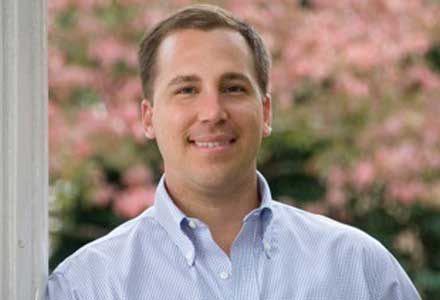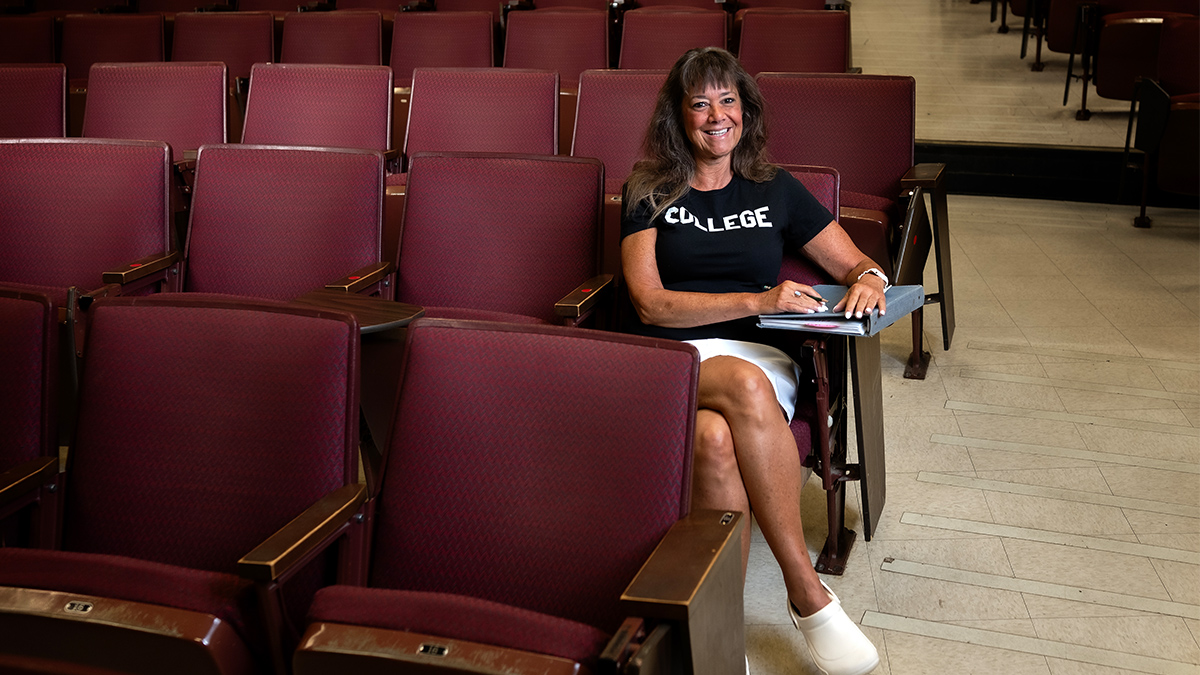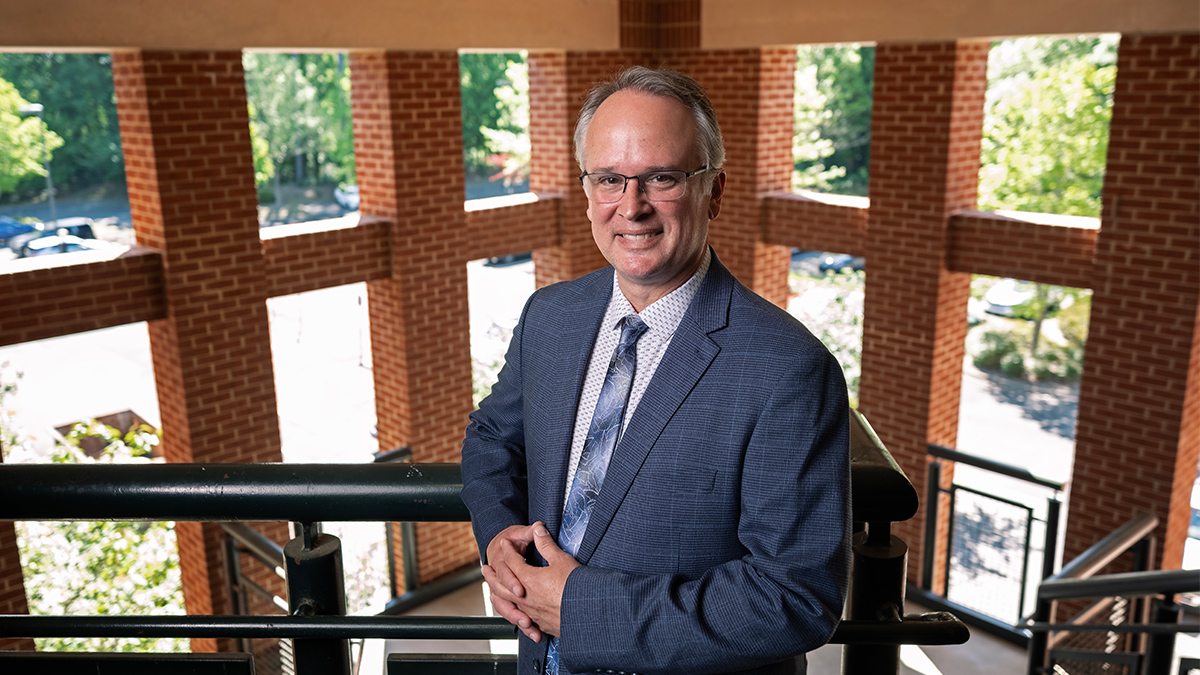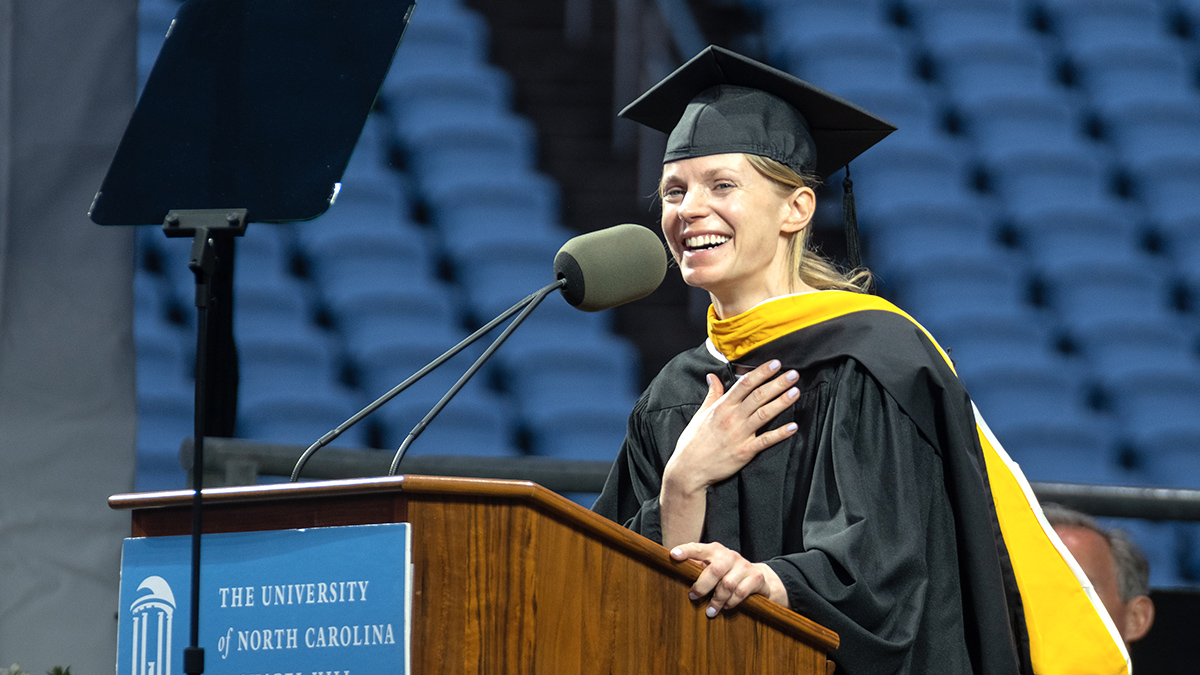Covenant Scholar invests in his future
This 2007 Carolina graduate and Carolina Covenant Scholar will earn his MBA from UNC’s Kenan-Flagler Business School in May 2013 and go to work for Wells Fargo in Charlotte.

When asked to picture where he will be five years from now – or even 10 years from now – the answer for Josh Wilkes is simple: “investment banking.”
The 2007 Carolina graduate and Carolina Covenant Scholar will earn his MBA from UNC’s Kenan-Flagler Business School in May 2013. He will work for Wells Fargo in Charlotte, N.C., in the Consumer, Healthcare, and Gaming Industry Group. For Wilkes, it’s a dream come true.
“It’s what I came to school for,” Wilkes says of his job. “I can’t believe I’m going to be a banker. It’s exactly what I want to do.”
Reaching this point, however, was not easy.
At age 12, Wilkes moved from Dallas to Clarkton, N.C., after his parents’ divorce. His mother worked full time, raised two children and cared for his grandmother and special-needs aunt. Wilkes helped by cooking meals, doing laundry, tending the yard and setting a good example for his younger brother.
“Work hard and transfer”
“I got my first job at 14 because my mother showed me that if I wanted something, then I had to earn it.” This work ethic instilled in Wilkes the resiliency and determination that continue to propel him forward. It also kept him from being discouraged when he did not gain admission to Carolina as a first-year student. “I knew that Carolina was where I wanted to be, so I decided to work hard and transfer.”
Although Carolina was at the top of his list, Josh applied to multiple universities as a transfer student. The academic rigor of the institutions was a top priority. “I knew I wanted to be at a place that had a good reputation and quality academics that would give me an exceptional education and the best opportunities once I graduated.”
Cost was also crucial. “It was important to me that I transfer to a public state university because I worried about the loans and debt I could accrue if I went to a private school.” When Wilkes weighed his options of the schools that would provide the best education at greatest value, Carolina was the clear favorite.
Once Wilkes received his acceptance letter, he was pretty set on transferring to Carolina, but subsequent correspondence solidified his decision. “I got an email telling me I had received the Covenant, and I was thrilled. Not having to worry about the financial burden was and is a huge relief.”
Getting into and paying for Carolina were only half the battle. “As a transfer student, it was difficult to come here and get the lay of the land,” he says. “There were a lot of things that I didn’t know.” While Wilkes appreciated the faculty and staff support he received as a Covenant Scholar, he longed for greater interaction with students who could better relate to his experience.
“I worked with Covenant Academic Coordinator Fred Clark to pilot the Peer Mentor program because I felt that it was important for students to get a perspective of Carolina beyond that of faculty and staff,” he says.
As part of the program, Wilkes connected with the next group of scholars to provide them with information on housing, dining, student organizations and campus life. “While great, faculty and staff can’t speak on these topics in the same way students can because we live that life day in and day out,” Wilkes says.
The Peer Mentor program has evolved into an integral part of the Covenant experience. “I hope the program provides a better transition for students and ultimately makes for a stronger Covenant community.”
“Covenant isn’t a handout”
“The Covenant isn’t a handout,” Wilkes says. “Yes, tuition is given to you, but if you want to graduate debt-free, then you have to work hard and take advantage of the many resources and structures in place to help you do so.”
These resources were particularly important for Josh because he spent his undergraduate career as a psychology major.
“My dad bought me a subscription to the Wall Street Journal my senior year, so I started reading about companies and international business, and it captivated me,” he says.
By that time, Josh was too deep into his major to change, so he turned to the Covenant. His mentors directed him to Career Services, where he searched for jobs in business that did not require a business degree.
“I was able to differentiate myself because I had people skills,” he says. “I knew how to understand, talk to, relate to and read people.”
Wilkes perfected his people skills through a work-study position with the Environmental Protection Agency, which he held as a part of his Covenant aid.
“We did joint studies with UNC Hospitals on cystic fibrosis,” he says. “Since I was initially contemplating a career in psychology, I knew it was important for graduate school to gain experience running studies, engaging with people, analyzing data and conducting trials.”
Even though he did not go on to pursue an advanced degree in psychology, this foundation allowed Wilkes to land a job with Lincoln Financial Group in Hartford, Ct., upon graduating. During three years of learning about business models and structures, Wilkes discovered a passion for investment banking and decided to apply to MBA programs.
“When I started thinking about getting my MBA, I knew I wanted to return to Carolina,” Josh says. “I applied to two schools and received my acceptance letter from the other school first, but I knew that if I didn’t get into Kenan-Flagler the first time, I was just going to wait and apply again the following year.”
That wasn’t necessary and, as he does with his other accomplishments, Wilkes attributes it in part to people at the Covenant such as Fred Clark and Shirley Ort, director of scholarships and student aid. “Fred and Shirley always believed in me and encouraged me,” he says. “That’s the Covenant difference – the people.”




